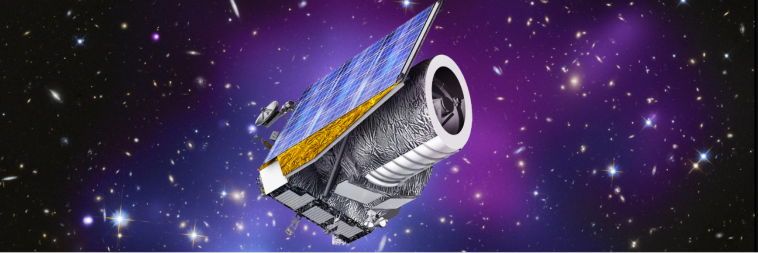Euclid has been launched!

On July 1st ESA’s Euclid observatory was launched from the Space Force Station (United States) Cape Canaveral, by SpaceX’s Falcon 9 rocket.
Now follows a thirty-day long journey to the second Lagrange point of the Sun-Earth system, the same eye that is orbited by the much more famous James Webb Space Telescope.
If all goes well, Euclid should observe from the L2 for at least six years, measuring the shapes, sizes and distances of many galaxies, all with the goal of better understanding the dark universe: dark matter and dark energy.
It is primarily a cosmological mission, which seeks answers to fundamental questions, but we am sure that astrophysicists who study galaxies, their formation in the early universe and their development in the meantime, who are interested in how gas and dust turn into stars and planets in these objects, who want to know how galactic groups, clusters and superclusters are formed, will be delighted with the extremely precise data that Euclid will give them.
Judging by the success of another ESA space telescope, the fantastic Gaia, Euclid should leave us speechless too. In fact, the two instruments will complement each other very nicely: Gaia will survey our galaxy with extreme precision, and Euclid will do the same with the rest of the universe.
Euclid will not be looking at the part of the sky where there is a lot of Milky Way material but will scan about one-third of the sky (about 15 thousand square degrees) that is on the other side.
It will observe about 10 billion light sources, with an accuracy 50 times greater than that which can be achieved by telescopes on the surface of the Earth.
Most redshifts will be determined photometrically, by measuring the intensity of light from distant sources registered through at least 7 different filters, but Euclid will also measure spectroscopic which means much more precise redshifts for at least 30 million objects. This will make it possible to create a first-class spatial map of the observed part of the universe.
Stay tuned for new updates on Euclid!

